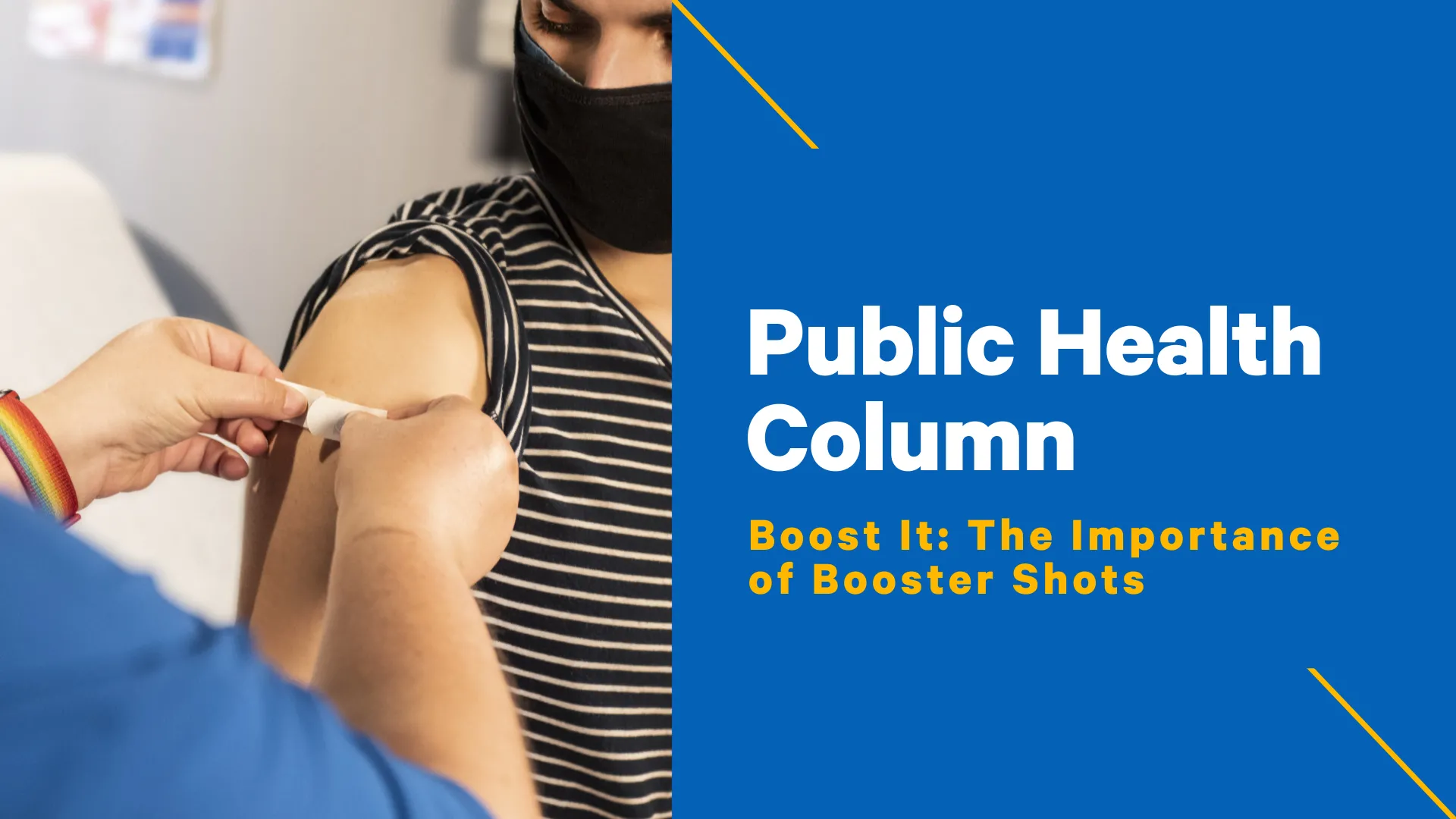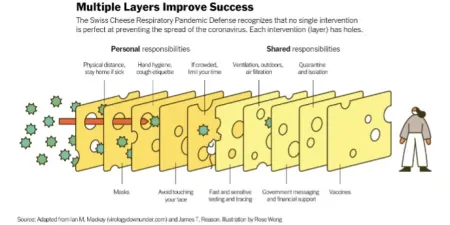Coughs and sneezes spread diseases but can be controlled with dose, duration and distance.
We are now fully entering cold and flu season, COVID cases are on the rise and new viral variants are being discovered. Today’s health column is all about boosters. I am not just speaking about vaccine boosters, but all the ways we can boost the prevention of infectious diseases.
Infections like coronavirus and influenza are spread through aerosols and droplets that are expelled from our respiratory system. To help mitigate our exposure we need to think about this as a Swiss cheese problem. A single layer of protection is not perfect, we need to layer multiple types of protection to keep our IC campus protected. Let’s talk about how we can boost each layer!

